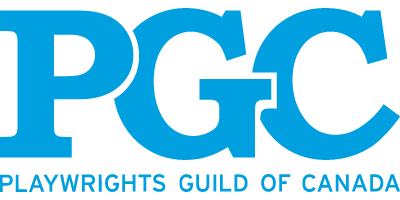Description
Purpose
The program supports opportunities for Ontario artists at any stage of their career to acquire new artistic skills to advance their arts practice. It funds all contemporary and traditional art practices that are supported at OAC. All learning must be led by an expert and include feedback throughout the training period. Experts include mentors, teachers, trainers, and Elders. Projects may include study, training, mentorship, and/or apprenticeship.
There are two categories:
- Artists practicing professionally for 10 years or less
- Artists practicing professionally for 11 years or more
Upcoming Deadline dates
June 3 and November 18, 2021, 1 p.m. ET
- Applications are available in Nova approximately two months before the deadline.
- Grant notification will be available approximately four and a half months after the deadline.
Grant amount(s)
- Artists practicing professionally for 10 years or less: $7,500
- Artists practicing professionally for 11 years or more: $7,500
Important:
- Partial grants are not awarded.
- Your project must have a budget of at least $7,500.
- Additional revenue sources are not required if your costs equal $7,500. If your project’s costs exceed $7,500, you must include additional revenue sources in order that total revenues and total expenses balance.
Recent changes
- There are two deadlines in 2021.
- This program does not currently fund travel or in-person activities.
- Grant notification is now available approximately four and a half months after the deadline. Refer to the “Activity timing” section on this page to understand how this may affect the timing of eligible activities.
Eligible applicants
- professional artists who are Ontario residents working in an arts practice supported at OAC
Read the Guide to OAC Project Programs or more eligibility information.
Important: Applicants must meet program and OAC eligibility criteria at the time of application and for the duration of your project.
Ineligible applicants
- individuals who have received a Chalmers Professional Development Projects grant in the last three years
- arts administrators and producers
- ad hoc groups, collectives and organizations
- municipalities, colleges and universities
- permanent or semi-permanent faculty members of a college or university, including tenured, tenured-stream, contractually limited, and continuing employees
- students enrolled full- or part-time at an educational institution, including graduate students, regardless of the program of study
- anyone who has received a grant from one of the following programs and not completed and reported on the project:
- Chalmers Arts Fellowships
- Chalmers Professional Development Projects
- Craft Projects (if the project includes professional development expenses)
- Deaf and Disability Arts Projects (Professional development category)
- Northern Arts Projects – (Skills/Career development category)
- National and International Residency Projects
- Skills and Career Development: Indigenous Arts Professionals and Arts Professionals of Colour
- anyone who has not received notification that their application to one of the above programs was unsuccessful
This program funds
Eligible activities include:
- mentorships and apprenticeships
- skills training courses and master classes
Important: All classes, mentorships, apprenticeships and meetings must take place either online, over the phone or by correspondence.
Eligible expenses include:
- artist fees – payment to yourself (maximum $150 per day)
- Artist fees should be calculated based on time or contribution to the project. The program does not fund living and personal expenses – do not include these as the rationale for the calculation of artist fees.
- mentor and tutor fees
- tuition and registration fees for master classes, workshops and training courses
- transportation of musical instruments
- purchase of materials and supplies
- equipment rental
- workspace rental, if you will be the only person using the space during the rental period
- child care and other dependant care fees (this does not include regular, ongoing expenses)
- expenses related to making the project accessible for project participants (other than the applicant) who are Deaf or have a disability
- Note: Applicants to this program who identify as Deaf or as having a disability may apply for supplementary funds for their own accessibility expenses through Accessibility Fund: Project Support.
Note: Additional revenue sources are not required if your costs equal $7,500. If your project’s costs exceed $7,500, you must include additional revenue sources in order that total revenues and total expenses balance.
This program does not fund
- travel
- in-person events or activities
- creating, completing, recording or producing artwork
- commissioning, acquiring or publishing artwork
- touring, exhibiting, promoting or marketing artists’ work
- research related to the subject or topic of new artwork
- projects that do not include a teacher, mentor, Elder or other expert
- undergraduate or graduate university or college courses
- diploma or conservatory studies from accredited institutions
- projects that include collaborating with other artists, ad hoc groups/collectives and/or organizations; projects that are affiliated with the applicant’s ad hoc group/collective and/or organization
- market development or business planning projects, including performance showcases, book launches, art fairs and festivals
- production of portfolios or promotional materials, documentation of artwork
- fundraising activities
- fees to pay an arts organization to host an apprenticeship
- language classes (except accent coaching, repertoire development or similar)
- administration expenses (office supplies, administrator/manager fees, etc.)
- shipping of artwork
- major capital expenditures, including buying, leasing or renovating buildings and purchase of major equipment such as computers or musical instruments
Activity timing
The activities for which you are requesting funding:
- cannot start before the deadline
- cannot finish before you receive your grant results
- must be completed no more than two years after you receive the grant results
The project’s work plan may run continuously or be spread out in several segments.

